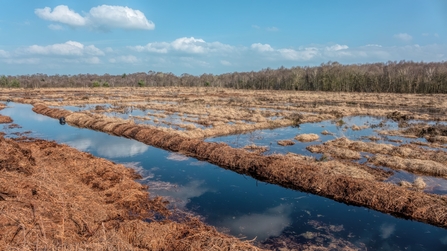SWT declared a climate emergency in 2019 and made a commitment to reach net zero emissions by 2030. The outcome was a climate action plan that is updated annually and a climate and biodiversity working group. There is a terrific article by James Drever in the recent autumn edition of our membership magazine Wildlife. This explains what the Trust as an organisation has been doing to reduce emissions of CO2 from its operations and activities.
We all love wildlife and the natural environment. We understand more than most the implications of biodiversity losses and how global heating is going to accelerate the changes in our natural environment. We can explain the implications of the interlinked climate emergency and biodiversity crisis to those around us. The message needs to be simple. The blanket of pollution trapping heat on Earth is made worse by burning more coal, oil, and gas. Another ten years of incremental changes will not be enough.
Tackling global heating and climate change and reversing ongoing declines in biodiversity are so often linked. Fenn’s, Whixall and Bettisfield Mosses NNR on the Shropshire/Wrexham border is a good demonstration of nature recovery in practice. One of Britain’s largest lowland raised bogs is being restored after many years of damage from drainage and peat removal. Actively growing bog vegetation captures CO2 and the carbon is held in the deeper peat layers. The restoration works have been significantly helped by the current £5 million grant from EU-LIFE under the Marches Mosses BogLIFE Project, a partnership of Natural England, Shropshire Wildlife Trust and NRW.


